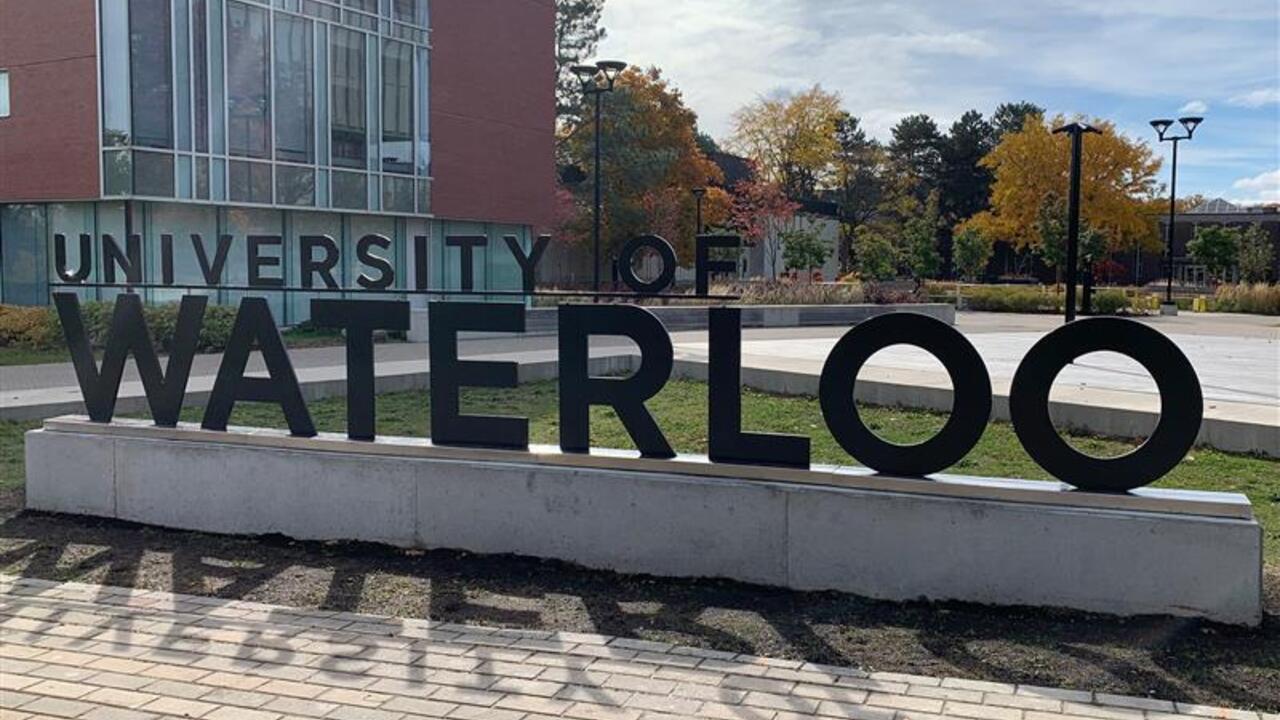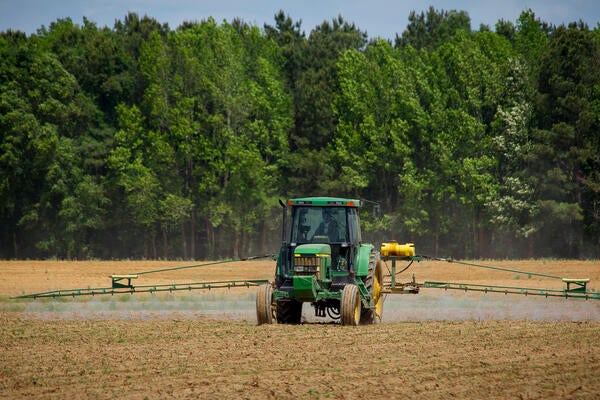
Waterloo leads $1.65 million sustainable mineral extraction training program
A new generation of professionals are looking for ways to manage waste and water quality while maximizing efficiency.

A new generation of professionals are looking for ways to manage waste and water quality while maximizing efficiency.
By Media RelationsResource extraction and mining are cornerstones of the Canadian economy, but current extraction techniques come at a severe environmental price. Limiting environmental impacts is a priority for companies as they look to a new generation of professionals for ways to manage waste and water quality while maximizing efficiency.
The Natural Sciences and Engineering Research Council (NSERC) announced today that the it is awarding the University of Waterloo – along with five other Canadian universities and institutes – $1.65 million to establish TERRE CREATE (Training toward Environmentally Responsible Resource Extraction) through NSERC’s Collaborative, Research and Training Experience grant program.
Led by Professor David Blowes from Waterloo’s Department of Earth and Environmental Sciences a team of thirty-two Canadian researchers in the TERRE CREATE program combine two of NSERC’s priority areas: natural resources and environmental science and technology.
“TERRE CREATE is a unique program that will propel Canada and Canadian students to the forefront of sustainable resource extraction and mining on an international level,” said Blowes.
The program will offer an unprecedented range of classroom, research and workshop opportunities for exceptional environmental science students at both the undergraduate and graduate levels as well as post-doctoral researchers.
Students will also benefit from industry research partnerships, internships and work placements aimed at delivering classroom knowledge straight to the field. Soft skill training, mentorship, multidisciplinary workshops, conferences, and field-site collaborative research projects are also designed to accelerate professional skill development and prepare students for employment upon graduation.
In addition to Waterloo, the program’s co-applicants include University of British Columbia, University of Alberta, University of Saskatchewan, and University of New Brunswick, Québec en Abitibi-Témiscamingue, Institut de Recherche en Mines et en Environnement (IRME), and the Canadian Circumpolar Institute (Alberta).
Collaborators include Shell Canada, AMEC, Canadian Light Source Inc., Diavik Diamond Mines Inc., Detour Gold Ltd., the Prospectors and Developers Association of Canada, the École Polytechnique, and the Universities of Queensland and Luleǻ Technical Universities . Collaborating Waterloo faculty members come from the departments of Earth and Environmental Sciences, Biology, Chemical Engineering and Civil and Environmental Engineering.
Students can apply to TERRE CREATE starting Fall 2014.
In just half a century, the University of Waterloo, located at the heart of Canada's technology hub, has become one of Canada's leading comprehensive universities with 35,000 full- and part-time students in undergraduate and graduate programs. Waterloo, as home to the world's largest post-secondary co-operative education program, embraces its connections to the world and encourages enterprising partnerships in learning, research and discovery. In the next decade, the university is committed to building a better future for Canada and the world by championing innovation and collaboration to create solutions relevant to the needs of today and tomorrow. For more information about Waterloo, please visit www.uwaterloo.ca.
-30-
Nick Manning
University of Waterloo
519-888-4451
226-929-7627
www.uwaterloo.ca/news
@uWaterlooNews
Attention broadcasters: Waterloo has facilities to provide broadcast quality audio and video feeds with a double-ender studio. Please contact us to book.

Read more
Collaboration with diverse health-care leaders ensures a curriculum tailored to address the sector's most pressing challenges

Read more
Farmers need support to adopt farm forests, windbreaks and riparian buffers as environmental best management practices

Read more
Transformative AI innovations, data and ethics are the focus across digital health academia, clinical practice and industry
The University of Waterloo acknowledges that much of our work takes place on the traditional territory of the Neutral, Anishinaabeg and Haudenosaunee peoples. Our main campus is situated on the Haldimand Tract, the land granted to the Six Nations that includes six miles on each side of the Grand River. Our active work toward reconciliation takes place across our campuses through research, learning, teaching, and community building, and is co-ordinated within the Office of Indigenous Relations.